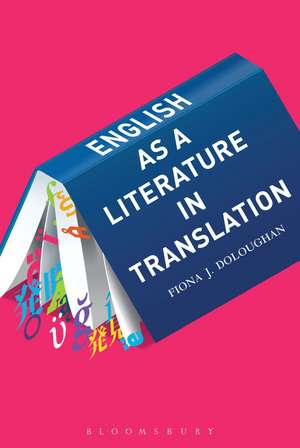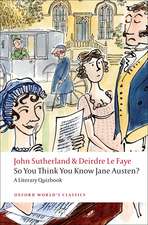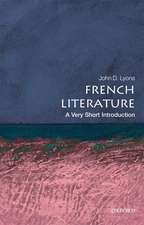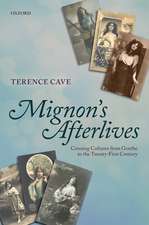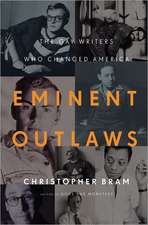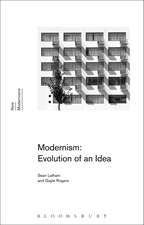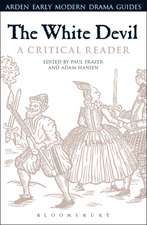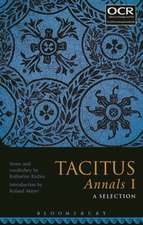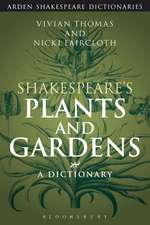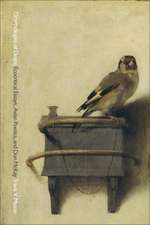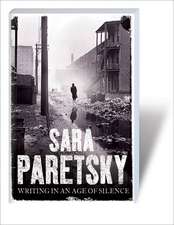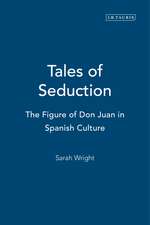English as a Literature in Translation
Autor Dr Fiona J. Doloughanen Limba Engleză Hardback – 18 noi 2015
| Toate formatele și edițiile | Preț | Express |
|---|---|---|
| Paperback (1) | 255.47 lei 6-8 săpt. | |
| Bloomsbury Publishing – 17 mai 2017 | 255.47 lei 6-8 săpt. | |
| Hardback (1) | 655.16 lei 6-8 săpt. | |
| Bloomsbury Publishing – 18 noi 2015 | 655.16 lei 6-8 săpt. |
Preț: 655.16 lei
Preț vechi: 942.34 lei
-30% Nou
Puncte Express: 983
Preț estimativ în valută:
125.38€ • 130.10$ • 104.80£
125.38€ • 130.10$ • 104.80£
Carte tipărită la comandă
Livrare economică 17-31 martie
Preluare comenzi: 021 569.72.76
Specificații
ISBN-13: 9781628925098
ISBN-10: 1628925094
Pagini: 192
Dimensiuni: 152 x 229 x 13 mm
Greutate: 0.43 kg
Editura: Bloomsbury Publishing
Colecția Bloomsbury Academic
Locul publicării:New York, United States
ISBN-10: 1628925094
Pagini: 192
Dimensiuni: 152 x 229 x 13 mm
Greutate: 0.43 kg
Editura: Bloomsbury Publishing
Colecția Bloomsbury Academic
Locul publicării:New York, United States
Caracteristici
Examines the politics of language and literary creativity using theoretical concepts from multiple disciplines
Notă biografică
Fiona J. Doloughan is Lecturer in English at The Open University, UK.
Cuprins
AcknowledgementsPreface1 Introductory Chapter2 Lost in Translation3 A Wandering Bigamist of Language4 Lives in Translation5 Migration and Mobility6 Border-Crossing and Literary Creativity7 Concluding RemarksReferencesIndex
Recenzii
This well-written book explores contemporary literature in English by multilingual authors who reflect linguistic and cultural diversity. Doloughan (Open Univ., UK) illustrates their 'translating' and mediating role by analyzing such key texts as Polish-born Eva Hoffman's Lost in Translation (1989), Chilean Ariel Dorfman's play Death and the Maiden (1991), and Texan Gloria Anzaldúa's Borderlands (1987). Including James Kelman's Translated Accounts (2001) here is amply justified, since his idiomatic expression, informed by working-class roots and a Scottish dialect, deviates enough from the 'norm' to require some 'translation' by the reader. The most interesting case study deals with, among other texts, A Concise Chinese-English Dictionary for Lovers (2008) by the incredibly prolific multilingual author and filmmaker Xiaolu Guo (b. 1973), who presently lives in London. Doloughan briefly acknowledges that Guo also uses 'visual language' as a medium but seems to ignore its full importance: Guo dedicated the award-winning 2011 film adaptation of her novel UFO in Her Eyes (2009) to Mikhail Kalatozov and his 1964 film Soy Cuba. Guo's latest novel, I Am China (2014), is an exact translation of this very title. Similarly, Guo pays homage to Jean-Luc Godard's 1967 film La Chinoise with her films She, a Chinese and Once upon a Time Proletarian (both 2009). Summing Up: Recommended. Graduate students, researchers, faculty.
[This study] make[s] valuable contributions to the study of English literature in its broadest sense by reappraising in cognitive, hermeneutic, and aesthetic terms a wide range of heterolingual writing.
No language-certainly not the hybrid, motley creature that English has evolved into-exists in sovereign isolation. Challenging the linguaphobia and xenophobia that has infected political discourse in the United Kingdom and the United States, Fiona J. Doloughan offers an invigorating reading of English in the presence of and creative symbiosis with other languages. Through careful, insightful analyses of narratives of translation by Eva Hoffman, Xiaolu Guo, Ariel Dorfman, James Kelman, Gloria Anzaldúa, and Sandra Cisneros, Doloughan makes an important contribution to comparative literature, translation and translingual studies, and applied linguistics. English as a Literature in Translation demands a fresh perspective not only on those authors but on conventional notions of text, context, and national identity.
This is a timely and important book that highlights the ways in which contemporary writers in English are engaging with translation and multilingualism. Fiona Doloughan investigates the changing linguistic landscape in the English-speaking world and shows the extent to which writing today is grounded in different notions of translation.
Where English is not the world's first language, it is the second of choice. Any non-anglophone author will seek an English translation of their books. Yet in London's primary schools over 340 diverse languages are spoken, almost none of which are taught in the rapidly-declining field of "Foreign" Languages. Are overseas writers seeking English publication adapting to the restricted vocabulary of Globish? Or is global English being refreshed by the multiple inflections of local idioms and international street slang? Fiona J. Doloughan examines pluringual Britain and celebrates the emergence of a new literature that mixes genres and crosses borders. Part fresh research, part a long overdue theoretical review of what we read, write and say, her voice speaks for contemporary Britain.
[This study] make[s] valuable contributions to the study of English literature in its broadest sense by reappraising in cognitive, hermeneutic, and aesthetic terms a wide range of heterolingual writing.
No language-certainly not the hybrid, motley creature that English has evolved into-exists in sovereign isolation. Challenging the linguaphobia and xenophobia that has infected political discourse in the United Kingdom and the United States, Fiona J. Doloughan offers an invigorating reading of English in the presence of and creative symbiosis with other languages. Through careful, insightful analyses of narratives of translation by Eva Hoffman, Xiaolu Guo, Ariel Dorfman, James Kelman, Gloria Anzaldúa, and Sandra Cisneros, Doloughan makes an important contribution to comparative literature, translation and translingual studies, and applied linguistics. English as a Literature in Translation demands a fresh perspective not only on those authors but on conventional notions of text, context, and national identity.
This is a timely and important book that highlights the ways in which contemporary writers in English are engaging with translation and multilingualism. Fiona Doloughan investigates the changing linguistic landscape in the English-speaking world and shows the extent to which writing today is grounded in different notions of translation.
Where English is not the world's first language, it is the second of choice. Any non-anglophone author will seek an English translation of their books. Yet in London's primary schools over 340 diverse languages are spoken, almost none of which are taught in the rapidly-declining field of "Foreign" Languages. Are overseas writers seeking English publication adapting to the restricted vocabulary of Globish? Or is global English being refreshed by the multiple inflections of local idioms and international street slang? Fiona J. Doloughan examines pluringual Britain and celebrates the emergence of a new literature that mixes genres and crosses borders. Part fresh research, part a long overdue theoretical review of what we read, write and say, her voice speaks for contemporary Britain.
